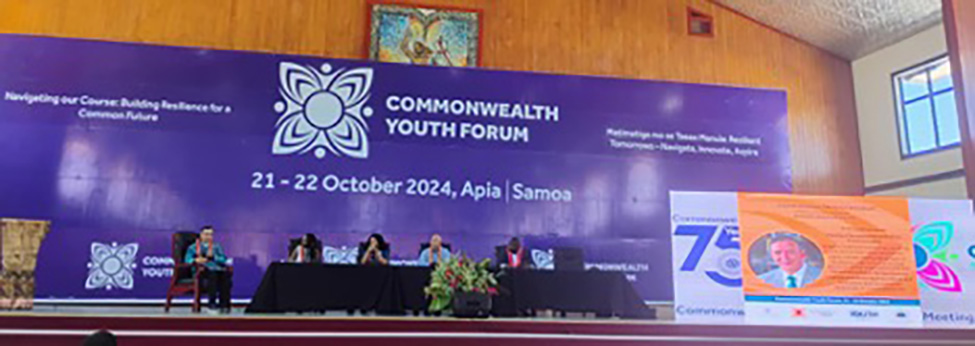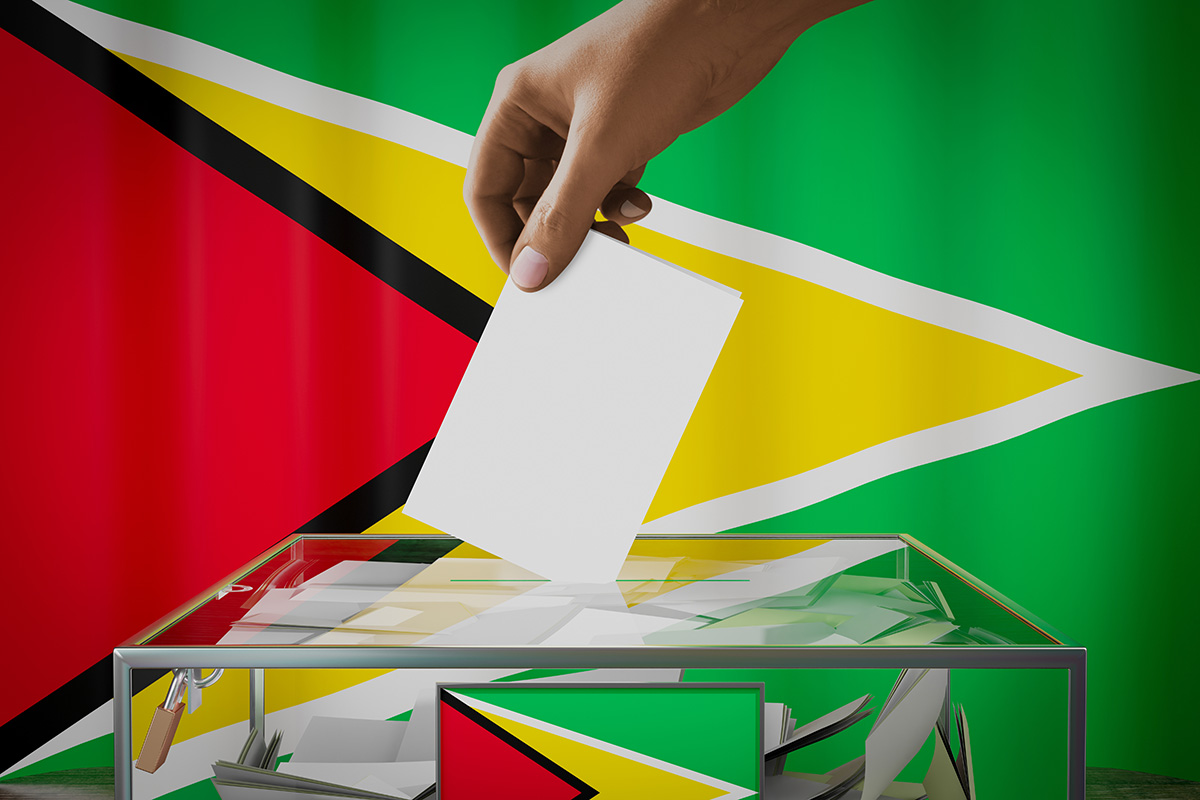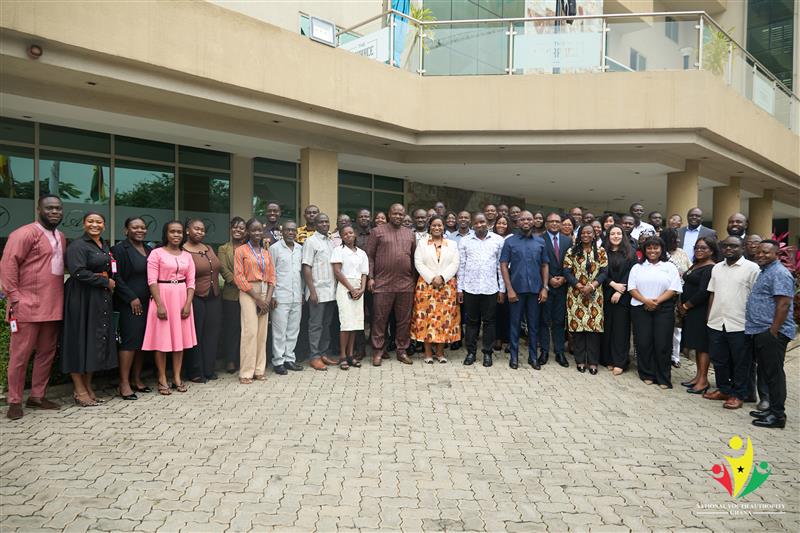Leveraging Youth Leadership for Strengthening Democracies and Youth Engagement and Participation
October 22by Jasmine Koria
The Commonwealth Youth Forum in Apia, Samoa opened on October 21 with an engaging Plenary Session on Leveraging Youth Leadership for Strengthening Democracies and Youth Engagement and Participation. Moderated by Prof. Luis Franceshi, Assistant Secretary General of the Commonwealth, and coordinated by Jasmine Koria of the Commonwealth Youth Forum International Taskforce, the dialogue was conducted using the indigenous Pacific talanoa style. This method of interview is purely conversational, and encourages panelists to speak about both their lived experiences and their professional backgrounds. As moderator, Prof. Franceschi highlighted the importance of young people understanding that democracy as a singular concept is not self-sustaining. It must be amplified by youth, and all global citizens, through good character and the humility to serve and support others.

Guided by specific, targeted questions, Prof. Franceschi leveraged perspectives and knowledge from the Honourable Mario Keith Boweg (Bahamas), Ms. Sajini Wickramasinghe (Commonwealth Youth Human Rights and Democracy Network), Mr. Miles Young (Director of the Human Rights and Social Development Division, SPC), Ms. Eunice Oladejo (Incoming CYC Youth Representative for Europe and Canada), and the Honorable Hamoa Holona (Tuvalu).
In speaking about both the theme of the plenary and his experiences, Honourable Mario Keith Bowleg reiterated Nelson Mandela’s famous words, “Sports has the power to change the world… It speaks to youth in a language they understand.” He shared that while governance and policy are often at the forefront of discussions about democracy in sporting bodies, we must acknowledge that every time a youth participates in a team or individual sporting activity, they are actively and directly participating in important decision-making processes. Sportspeople make choices on the field that result in either wins or losses; both of which can promote unity or discord in countries and regions.
Adding to the conversation, Ms. Saijin Wickramsinghe noted that in order for democracy to thrive in our Commonwealth, youth must understand their human rights and respect the rights of others. She stated that global power and governance structures are marred by dynastic politics; dynastic politics is a direct impediment to the kind of equity that is needed in order to ensure youth participation in political spaces. There can be no democracy, ultimately, without this.
Mr. Miles Young brought a Pasifika and Oceania perspective into the talanoa. He did so by emphasizing the importance of cross-cutting solutions which take into account both the age-based and gender-related intersections of all issues that concern the Pacific region. He encouraged the use of positive and empowering cultural expressions which hold space for youthful voices; he also celebrated the positive outcomes of the September 4-5 Pacific Youth Ministers Meeting which was hosted by Fiji this year. During this high-level gathering, the region’s leaders welcomed the presence of young people in advisory and participatory roles.
Ms. Eunice Oladejo had a simple but poignant message before the floor was opened for questions: “We meet youth where they are and elevate them to where they should be.” Part of this elevation, she noted, must include a consistent commitment by governments and civil society leaders to providing funding for youth-focused and youth-led initiatives.
Ms. Lesaoaileaveolela Puleitu, a Samoa National delegate, shared afterwards that she had enjoyed this particular plenary, and that it had reinforced her belief in the importance of a democratic Samoa and, more broadly, a democratic Commonwealth.




